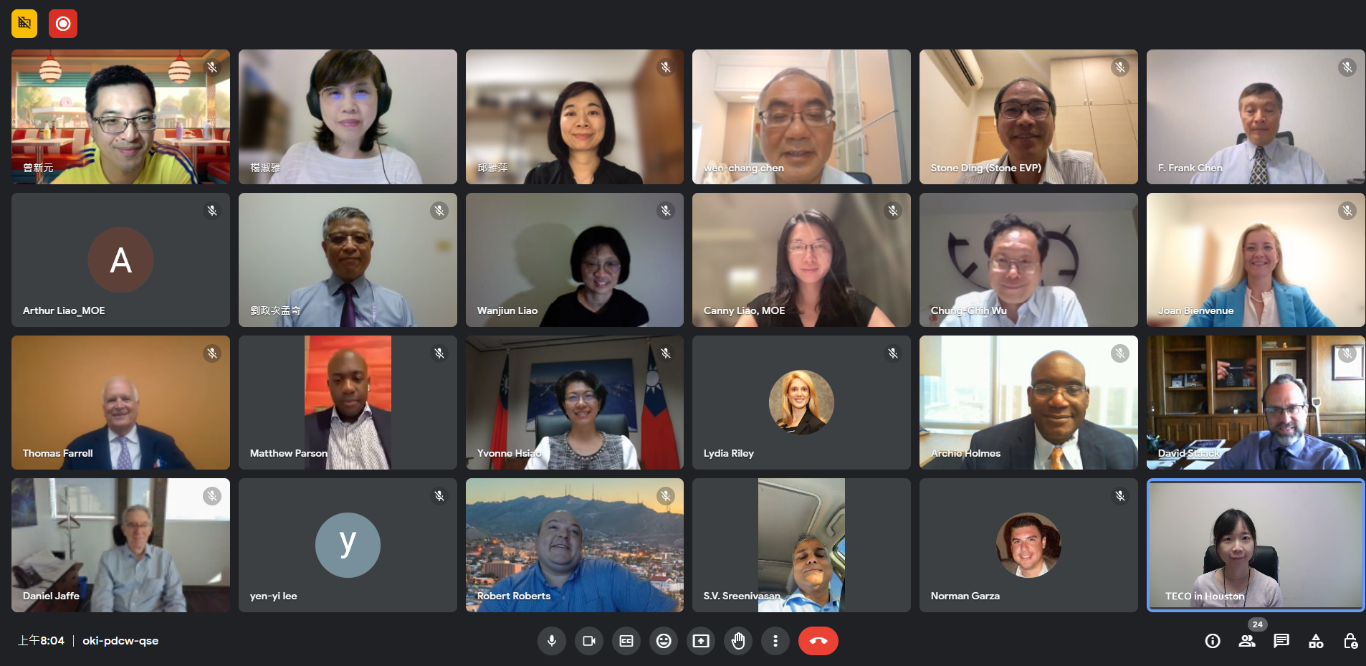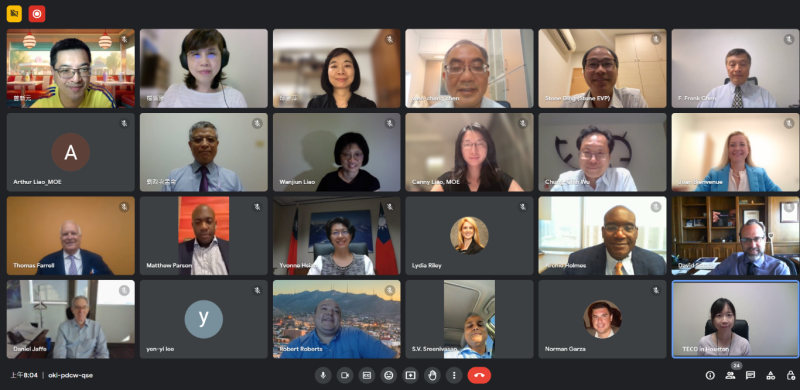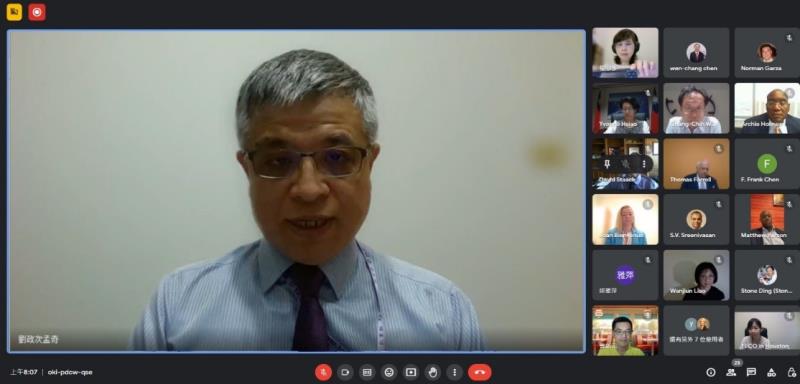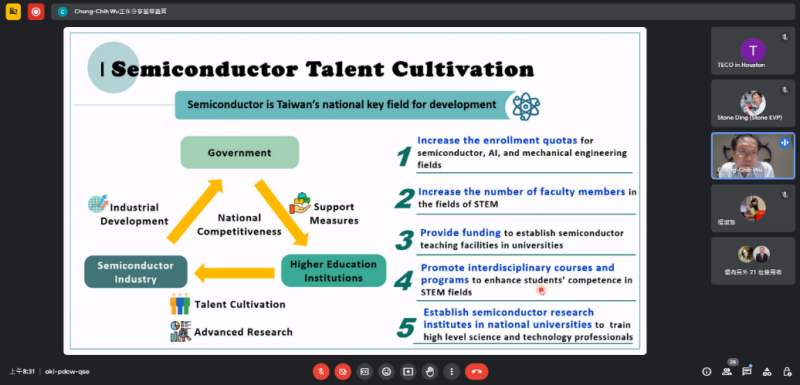Taiwan and Texas Hold First Working Session on Semiconductor Talent Cultivation & Academia-Industry Cooperation

The Taiwan and Texas (T&T) Semiconductor Talent Cultivation and Academia-Industry Cooperation Summit was held in Austin, Texas on June 2, and since then people in Taiwan and Texas have been actively engaged in planning strategies for cooperation and potential forms of collaboration. Government and education officials from Taiwan and Texas took part in the first working session on July 2 to discuss launching international education cooperation projects focused on semiconductors and talent cultivation. Education officials and representatives of their respective university systems, discussed the shape and scope of cooperation, and the possibility of signing an associated memorandum of understanding between participating universities in Taiwan and Texas.
The working session began with remarks by six distinguished participants: Dr. Mon-Chi Lio, Taiwan’s Political Deputy Minister of Education; Matt Parson, Assistant Commissioner for Workforce Innovation, at the Texas Higher Education Coordinating Board; Yvonne Hsiao, Director General of the Taipei Economic and Cultural Office in Houston; Prof. Chen Wen-Chang, president of National Taiwan University; Dr. Archie Holmes, Executive Vice Chancellor for Academic Affairs, at the University of Texas System; and Dr. David Staack, an Associate Vice Chancellor of the Texas A&M University System.
In his opening remarks, Dr. Lio thanked each of the attendees for their efforts and contributions toward promoting higher education cooperation between Taiwan and Texas. He mentioned some of the progress that has been made with the Ministry of Education’s involvement since the summit in Austin: it was decided to establish the University Academic Alliance in Taiwan (UAAT) to promote higher education related cooperation between Taiwan and the US. This alliance, fully supported by the Ministry of Education (MOE), comprises 12 research-oriented universities in Taiwan, and National Taiwan University will take the role of its lead and primary spokesperson.
He also mentioned that the Executive Yuan held a cross-ministry meeting in June, that was chaired by the Vice-Premier. Representatives of all 12 universities in the new university alliance and various government agencies took part in the meeting and details of the first T&T Semiconductor Summit were presented. Following that meeting, the MOE submitted a multi-year plan for supporting the alliance’s international education collaborations to the Executive Yuan. The plan has passed initial review and is now undergoing final revisions. The MOE anticipates that this plan will be rolled out later this year, and that collaboration between the University Academic Alliance in Taiwan and Texas University Systems will be one of the first projects that it will support.
Executive Vice Chancellor Archie Holmes expressed great excitement about such a partnership. “We have representatives from UT Austin, Arlington, San Antonio, and El Paso here on the call. And across our system, we have over 500 students from Taiwan who are already involved in educational programs within the University of Texas system. ….We look forward to working together to advance our interests.”
After the opening remarks, Dr. Wu Chung-Chih, Vice President for Research and Development at National Taiwan University, Dr. S.V. Sreenivasan, the Cockrell Family Regents Endowed Chair in Engineering, at the University of Texas at Austin, and Dr. David Staack, Associate Vice Chancellor of the Texas A&M University System, gave presentations on current semiconductor capacity and encouraged collaboration in priority areas for development that offer mutual benefit.
Potential collaborative activities in the priority areas of research and workforce development were discussed during the meeting, including graduate student exchanges, student internships, and academia-industry collaboration regarding semiconductor technology. The main fields of cooperation will include, but not be limited to, semiconductor manufacturing, quantum technology, agriculture, biomedical engineering, space technology, and Mandarin language learning.
The attendees agreed that this first working session facilitated the development of more concrete cooperation plans between Taiwan and Texas. The University of Texas system, and the Texas A&M University System have both agreed to sign MOUs with the Academic Alliance of Universities in Taiwan and online meetings will be held to discuss further details. The enthusiasm on all sides has helped lay the groundwork for practical collaboration between universities in Taiwan and Texas.



